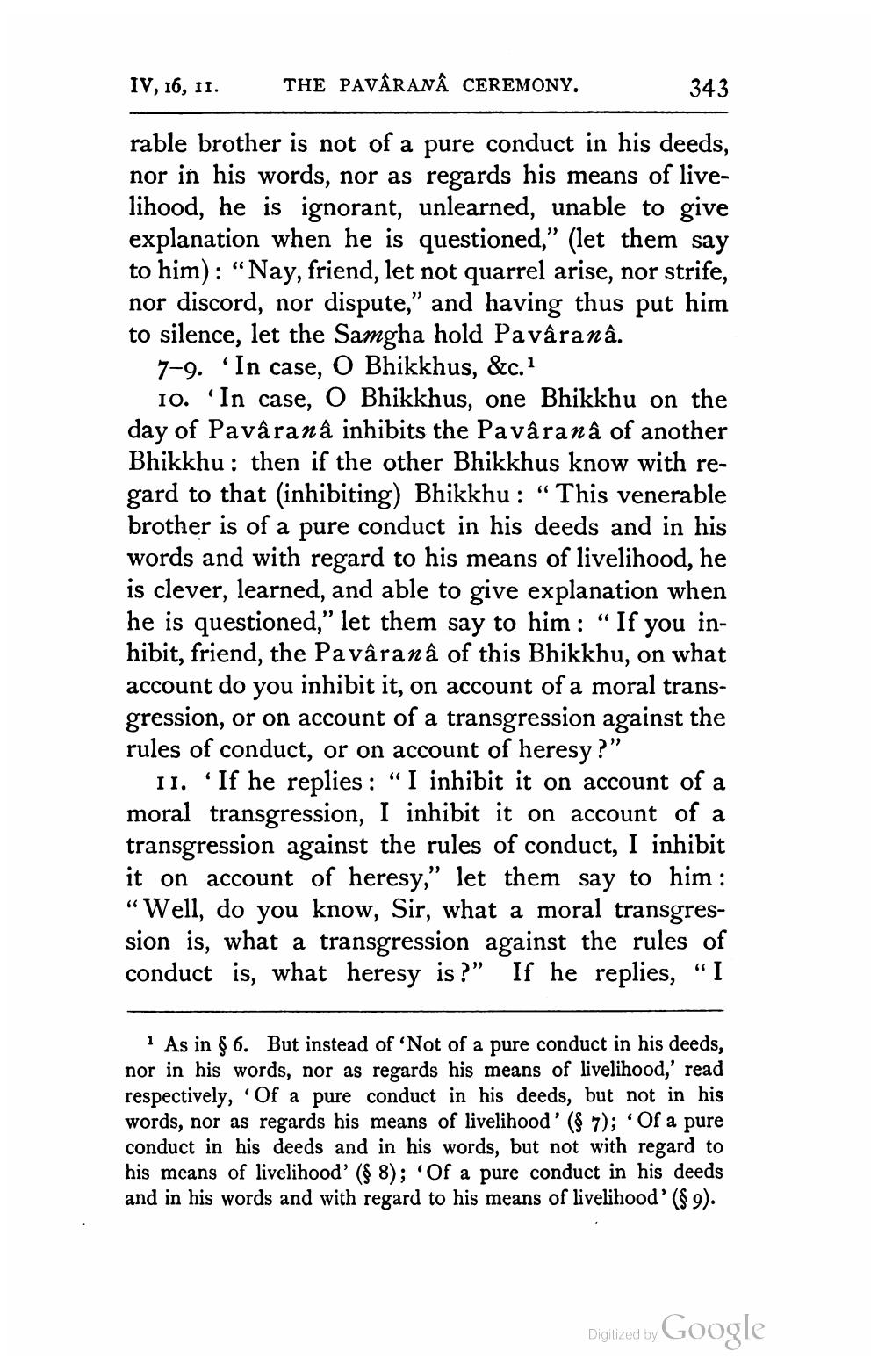________________
IV, 16, 11.
THE PAVÂRANÂ CEREMONY.
343
rable brother is not of a pure conduct in his deeds, nor in his words, nor as regards his means of livelihood, he is ignorant, unlearned, unable to give explanation when he is questioned,” (let them say to him): "Nay, friend, let not quarrel arise, nor strife, nor discord, nor dispute," and having thus put him to silence, let the Samgha hold Pavârana.
7-9. 'In case, O Bhikkhus, &c.
10. In case, O Bhikkhus, one Bhikkhu on the day of Pavâranâ inhibits the Pavâranâ of another Bhikkhu : then if the other Bhikkhus know with regard to that (inhibiting) Bhikkhu : “This venerable brother is of a pure conduct in his deeds and in his words and with regard to his means of livelihood, he is clever, learned, and able to give explanation when he is questioned,” let them say to him: “If you inhibit, friend, the Pavâranâ of this Bhikkhu, on what account do you inhibit it, on account of a moral transgression, or on account of a transgression against the rules of conduct, or on account of heresy?"
11. 'If he replies: “I inhibit it on account of a moral transgression, I inhibit it on account of a transgression against the rules of conduct, I inhibit it on account of heresy," let them say to him : “Well, do you know, Sir, what a moral transgression is, what a transgression against the rules of conduct is, what heresy is?" If he replies, “I
1 As in $ 6. But instead of ‘Not of a pure conduct in his deeds, nor in his words, nor as regards his means of livelihood,' read respectively, Of a pure conduct in his deeds, but not in his words, nor as regards his means of livelihood' ($ 7); Of a pure conduct in his deeds and in his words, but not with regard to his means of livelihood' ($ 8); Of a pure conduct in his deeds and in his words and with regard to his means of livelihood' ($9).
Digitized by Google




